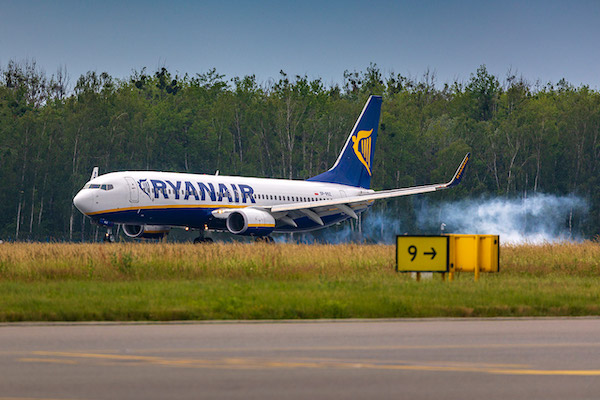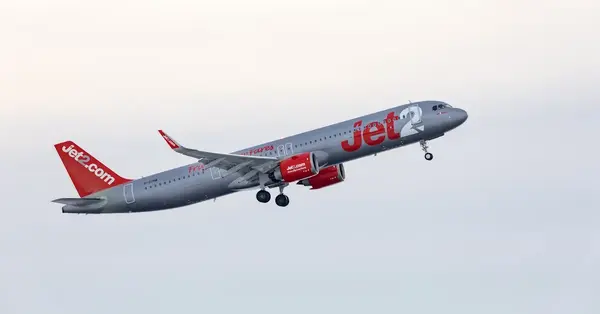You are viewing 1 of your 2 free articles
Ryanair ranked leading airline group in Europe for ninth year
Ryanair claimed the crown as the leading airline group in Europe for the ninth year running in 2023 as the overall number of low cost carrier flights rose by 21% year-on-year.
Total flights in European airspace increased by 10% to 10.2 million, reaching 92% of pre-pandemic 2019 levels, new data from air traffic management organisation Eurocontrol show.
Air traffic control strikes in France during the first half of the year, and an increase in extreme weather events during the summer months, had a “significant impact” on the network.
En-route delays due to ATC strikes were four times higher than in 2022 with almost all affecting French airspace.
The total average delay per flight on departure amounted to 17.7 minutes.
However, en-route flight delay levels were kept similar to 2022 despite more traffic, a “major increase” in strikes plus weather-related disruption.
Flight arrival punctuality across the European network at 71% was slightly below 2022 levels but more than seven percentage points below 2019.
Eurocontrol’s aviation overview for 2023 “highlights the challenge of achieving punctuality for over 10 million flights in the face of strikes, a massive increase in adverse weather and the disruption caused by Russia’s invasion of Ukraine”.
The report added: “Ukraine’s airspace has remained closed since February 2022, with neighbouring airspace absorbing more traffic.
“The start of the conflict in Israel (October 2023) has affected various flows that were unable to overfly the zone. Geopolitical crises have also had an impact on flows in Armenia, especially overflights.”
The number of flights is expected to reach 98% of 2019 levels this year, with some months potentially recording the same or higher numbers compared to 2019.
The number of passengers using Europe’s top 40 airports in 2023 was estimated to be up by 21% to 1.19 billion in the period to November.
Summer 2023 arrivals and departures were higher than in 2019 in some areas, for example Turkey and Greece.
Ryanair operated an average of 2,813 daily flights, up 11% year-on-year, followed by Lufthansa Group with 2,583 flights a day and British Airways owner IAG with 2,167.
Air France-KLM operated 1,787 daily flights and EasyJet 1,477, making it the fifth largest in Europe.
The UK handled the most daily flights on average, with an increase of 13% to 5,290 ahead of Spain, Germany, France and Italy.
The peak day for daily flights was on July 7, 2023, when 34,367 services were recorded across Europe.
Flight levels within Europe grew by 8%, with Europe to the rest of the world up by 18%.
But overall CO2 emissions grew by 12% to nine million tonnes for intra-European flights alone.
Airlines were charged more than €9.1 billion in en-route air traffic control fees, €1.5 billion more than the previous year and €1.2 billion more than in 2019.
“With the start of the winter season, some aircraft operators started to cut capacity. In addition, some weather issues leading to cancellations and the impact of the various conflicts has hindered the recovery, with traffic reverting to 92%-93% of 2019 levels,” Eurocontrol pointed out.


















